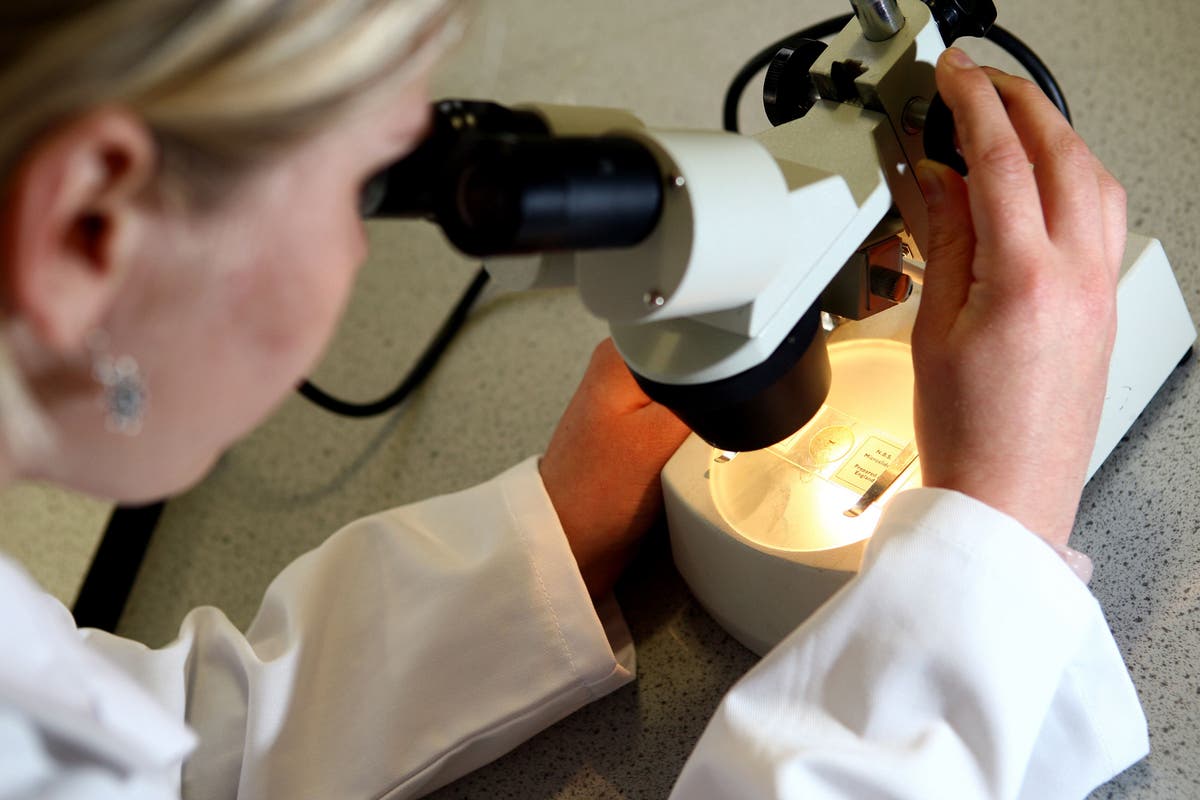To keep pancreatic cancers from growing, a new study reveals that switching from sugar glucose to a backup fuel “changes your diet.”
The “interesting” findings suggest that using a new drug to block the availability of this molecule, called uridine, could provide a new treatment for the most common and aggressive form of pancreatic cancer. It suggests.
Studies have shown that uridine may also help develop other cancers, including lung, stomach and brain cancer.
The molecule uridine is available throughout the body and is essential for healthy metabolism.
We hope that our research efforts will lead to new treatment strategies for people diagnosed with pancreatic cancer.
Dr. Angraj Sadanandam, ICR
However, researchers found that uridine, present in the environment around tumors, also serves as a nutrient source for pancreatic cancer when glucose is deficient.
Utilizing uridine in this way allows cancer cells to continue to grow even when normal food sources are not available, researchers say.
study Co-Leader Dr. Angraj Sadanandam, Cancer Institute System and Precision Cancer Medicine Team Leader research, London (ICR) said: “Cancer cells salvage whatever is available in the environment and use it to their advantage.
“It turns out that the most deadly pancreatic cancers even change their diet to survive.
“When cancers can’t get the glucose they normally rely on to survive, they can feed on a molecule known as uridine as an emergency backup.
“Next, we plan to explore ways to use uridine to monitor response to existing treatments in pancreatic cancer, and hopefully develop new drugs that target UPP1.
“We hope our research efforts will lead to new treatment strategies for people diagnosed with pancreatic cancer.”
This study was conducted with the ICR University of Michigan In the United States.
Researchers studied the nutrients used by pancreatic cancer cells over time using a technique known as phenotypic microarrays that can examine the characteristics of thousands of cells at once.
They found that uridine is broken down by an enzyme known as uridine phosphorylase 1 (UPP1) to produce another form of sugar, ribose, which fuels cancer cells.
Studies in mice showed that knocking out the UPP1 gene prevented pancreatic cancer cells from utilizing uridine, resulting in a drastic halt in tumor growth.
Scientists say these findings reveal potential new strategies in the treatment of pancreatic cancer.
The research team also examined patient samples and found that high levels of UPP1 were associated with poorer survival in patients with pancreatic cancer and other types of cancer.
Researchers found that UPP1 levels are elevated in the presence of a type of cell signaling that promotes the growth of many types of cancer, especially pancreatic cancer.
The researchers therefore reasoned that drugs that block this signaling (KRAS signaling) might also block uridine utilization, cutting off the emergency food supply for cancer.
This work is very novel, potentially very influential and really exciting
Dr Chris McDonald, UK Pancreatic Cancer
Dr. Kostas Lisiotis, co-director of the study and Associate Professor of Molecular and Integrative Physiology at the University of Michigan and Rogel Cancer Center in the United States, said: – By targeting the fact that pancreatic cancer cell proliferation and survival may be dependent on uridine. ”
“It’s interesting that this new study finds that pancreatic cancer can be diet-altering and dependent on certain fuel reserves,” said ICR Chief Executive Professor Christian Herrin. It is.”
“We hope to use this discovery about the underlying biology of pancreatic cancer to find more effective ways to treat this disease, including using existing drugs. ”
Dr Chris McDonald, UK Pancreatic Cancer Research Director added: “This research is very novel, potentially very impactful and really exciting.
“We very much hope that these findings may lead to new and improved treatments for pancreatic cancer in the future.”
This research Naturewas funded by the British Pancreatic Cancer and Ian Harty Charitable Trust.
https://www.independent.co.uk/news/health/study-research-university-of-michigan-london-nature-b2340703.html Study reveals how pancreatic cancer ‘changes diet’ to survive
